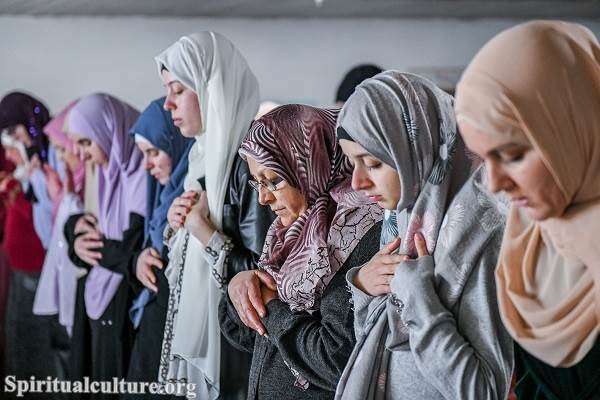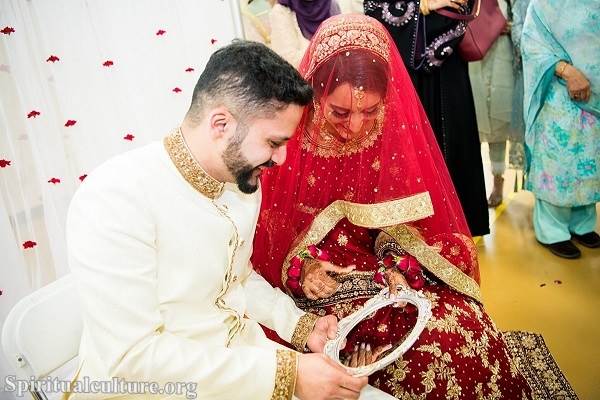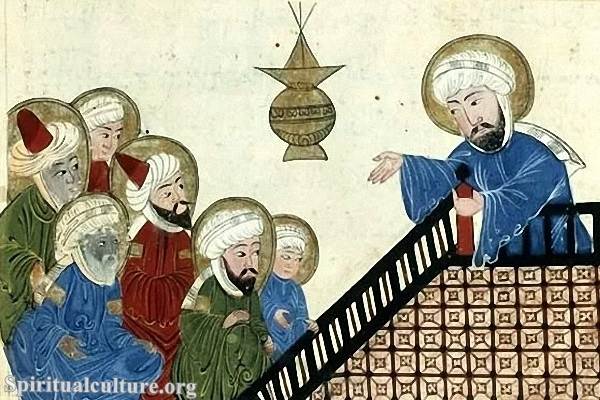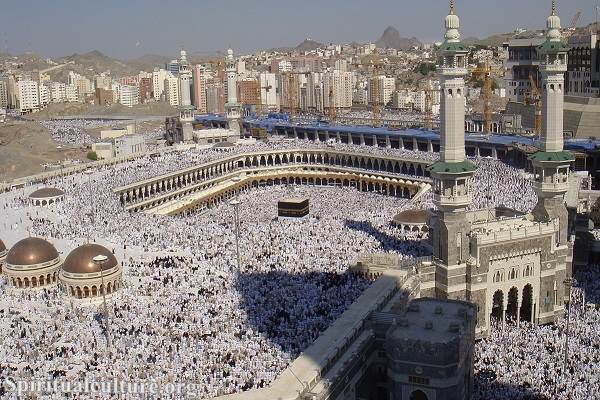The Quran speaks with timeless clarity about the role of prophets: not as kings, not as mystics in isolation, but as chosen servants of God who walk among us, calling humanity to truth, justice, and the remembrance of the Divine. Every nation, every people, has been sent a warner. This profound truth lies at the heart of Islam’s universal message — that prophecy is not a privilege of the few, but a gift of guidance for all.
As Spiritual Culture, we invite you to step into this sacred thread of revelation woven through history. This article explores how the Quran portrays prophets — their purpose, their struggles, their spiritual legacy — and why their missions still speak to the soul today. In the faces of Noah, Abraham, Moses, Jesus, and Muhammad (peace be upon them all), we find not only moral leaders but mirrors reflecting God’s mercy, wisdom, and justice.
Let us listen deeply to the voices of the prophets through the lens of the Quran, and discover what their stories awaken within us.
The Quranic Foundation: Who Are the Prophets?
Messengers Chosen by God
In the Quran, prophets (nabi) and messengers (rasul) are not self-appointed figures. They are divinely chosen, entrusted with sacred revelation, and given the task of guiding their people to the path of monotheism (tawheed) and righteous living.
“God chooses messengers from among the angels and from among the people. Indeed, God is All-Hearing, All-Seeing.”
— Surah Al-Hajj (22:75)
This divine selection emphasizes not only God’s supreme will but also the prophets’ humility. They are human, subject to human limitations — yet they carry divine light within their hearts.
Human Beings, Not Divine Beings
The Quran is clear: prophets are fully human.
“Say, ‘I am only a man like you, to whom has been revealed that your god is one God.’”
— Surah Fussilat (41:6)
This distinction is critical. Prophets are not worshipped. They are honored and followed — not because they are flawless, but because they are faithful.
Their humanity bridges the gap between heaven and earth. It is precisely because they feel hunger, sorrow, fear, and joy that they can speak to our hearts.
The Purpose of Prophethood: A Light for All Peoples
Calling to Monotheism and Justice
At the core of every prophetic message in the Quran is the call to worship one God and uphold moral integrity.
“And We certainly sent into every nation a messenger, [saying], ‘Worship Allah and avoid false gods.’”
— Surah An-Nahl (16:36)
The prophetic mission is not limited to rituals. It includes dismantling oppression, caring for the poor, and speaking truth to power. Prophets were often exiled, mocked, or threatened because they challenged unjust systems.
Mercy to the Worlds
The Quran speaks of the Prophet Muhammad ﷺ with a unique tenderness:
“And We have not sent you, [O Muhammad], except as a mercy to the worlds.”
— Surah Al-Anbiya (21:107)
This verse encapsulates the prophetic ethos — not harshness or condemnation, but mercy. Prophets are healers of souls and reformers of society, sent not to curse the world but to renew it.
Major Prophets in the Quran: A Tapestry of Faith
Prophet Noah (Nuh) — The Patient Warner
Noah preached for centuries, facing ridicule and rejection.
“He said, ‘My Lord, I have called my people night and day… yet my call only increases them in flight.’”
— Surah Nuh (71:5-6)
Noah’s perseverance reveals that success is not always measured by numbers, but by faithfulness.
Prophet Abraham (Ibrahim) — The Father of Monotheism
Abraham’s story is one of courage — smashing idols, walking into fire, and leaving his homeland for truth.
“Indeed, Abraham was a [comprehensive] leader, devoutly obedient to Allah, inclining toward truth…”
— Surah An-Nahl (16:120)
His willingness to sacrifice his son (later replaced with a ram) became a symbol of ultimate surrender to God’s will.
Prophet Moses (Musa) — The Liberator
Moses stands out as one who confronted Pharaoh, split the sea, and led his people to freedom.
“Go to Pharaoh, for he has indeed transgressed.”
— Surah Ta-Ha (20:24)
He is mentioned more than any other prophet in the Quran — a sign of the enduring power of liberation from tyranny.
Prophet Jesus (Isa) — The Spirit from God
The Quran honors Jesus with titles of reverence: Spirit from God, Word from God, and Messiah.
“Indeed, the Messiah, Jesus, son of Mary, is the Messenger of Allah and His Word which He directed to Mary…”
— Surah An-Nisa (4:171)
Jesus is revered not only for his miracles, but for his humility and nearness to God. The Quran denies divinity but affirms his miraculous birth, his message of compassion, and his return in the end times.
Prophet Muhammad ﷺ — The Seal of the Prophets
The final prophet, Muhammad ﷺ, came to complete the divine message — not to erase earlier prophets, but to confirm and fulfill their teachings.
“Muhammad is not the father of [any] one of your men, but [he is] the Messenger of Allah and seal of the prophets.”
— Surah Al-Ahzab (33:40)
His life — full of trials, wisdom, love, and reform — is considered the living Quran.
Characteristics of the Prophets in the Quran
Truthfulness and Trustworthiness
Prophets are never deceivers. Their moral integrity is essential to their mission.
“I am to you a trustworthy messenger.”
— Surah Ash-Shu‘ara (26:107)
Patience in Trials
Their journeys were never easy. Prophets lost children, endured rejection, and faced persecution. Yet they remained patient.
“So be patient, [O Muhammad], as were those of determination among the messengers…”
— Surah Al-Ahqaf (46:35)
Deep Connection with God
Every prophet had an intimate relationship with the Divine — marked by prayer, revelation, and inner certainty.
“And mention Our servant Job, when he called to his Lord, ‘Indeed, adversity has touched me, and You are the Most Merciful.’”
— Surah Sad (38:41)
This devotion is not abstract; it becomes a source of strength that fuels compassion, clarity, and resilience.
A Prophet for Every People
A Universal Principle
The Quran repeatedly affirms that every community has received guidance:
“There was no nation but that there had passed within it a warner.”
— Surah Fatir (35:24)
This affirms the diversity of revelation — a harmony of messages tailored to time and place, yet united in calling humanity to God.
Respect for All Prophets
Muslims are taught to believe in all prophets equally:
“We make no distinction between any of them…”
— Surah Al-Baqarah (2:285)
This verse fosters interfaith respect and reminds us that spiritual truth transcends boundaries.
Why Prophets Still Matter Today
Relevance in Modern Life
Though centuries have passed, the voice of the prophets echoes into our fragmented world. Their lives answer the questions that still haunt us:
- How do we live with integrity in a corrupt world?
- How do we remain hopeful in times of despair?
- How do we serve others without losing ourselves?
The prophets show us how.
A Mirror for the Soul
Each prophetic story is a mirror. When we read about Moses standing up to Pharaoh, we are invited to stand up to the pharaohs of our time — greed, ego, injustice. When we witness Mary’s quiet strength, we are called to cultivate inner purity.
The Quranic view of prophets is not historical nostalgia. It is spiritual guidance — alive, illuminating, and personal.
Reflect and Reimagine
The Quran’s vision of prophethood is not simply a theology. It is an invitation — to listen more deeply, live more truthfully, and love more fully.
As Spiritual Culture, we encourage you to reflect:
- Which prophet’s journey speaks most to your own?
- Where might God be calling you to act with courage, humility, or compassion?
Prophets were sent to transform societies — but also to awaken hearts. Their stories, preserved in the Quran, are not just about the past. They are about us — our struggles, our faith, our potential to live in divine light.
Let their example become your compass. Let their prayers echo in your own. And let their mission — mercy, justice, and love — continue through your life.





